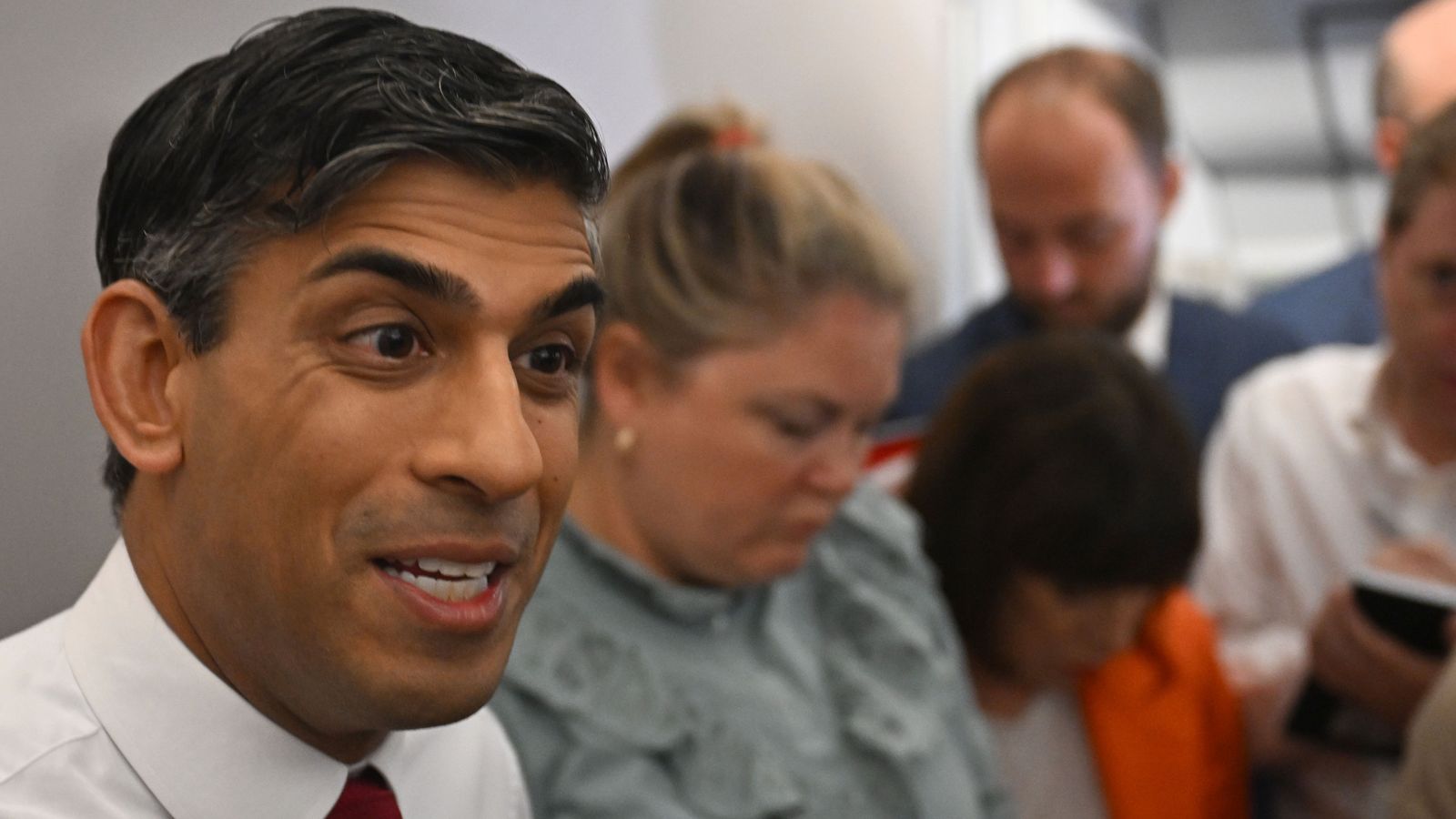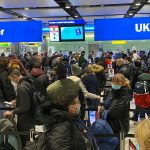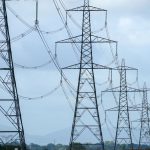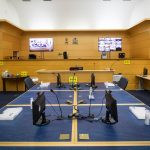Rishi Sunak has insisted his plan to stop small boat crossings in the Channel is “working” – despite more than 1,000 people making the journey over the weekend.
The prime minister said he has always acknowledged that crossings “will increase over the summer” but that his “overall strategy is the right one”.
Figures released by the Home Office show that 686 migrants were found crossing the Channel on 13 boats on Friday – the highest number in a single day so far this year – and 384 migrants made the crossing on Saturday.
It means that on Friday and Saturday, 1,070 people were detected making the crossing.
A further 269 people were detected on Sunday, taking the total number of people crossing so far this year to more than 12,000.
The prime minister first claimed in June that his plan to stop the boats was “starting to work”, citing a 20% drop in arrivals this year compared to the same period in 2022.
MPs to give verdict after U-turn on Illegal Migration Bill – politics latest
Minister refuses to back removal of murals for child arrivals – as 1,000 migrants arrive in two days
Migrant crossings: Highest number of people make dangerous Channel journey in a single day so far this year
Backlash as ‘evil’ Home Office paints over Mickey Mouse mural at child asylum seeker centre
Asked by reporters on board a flight to Lithuania for the two-day NATO summit whether it was a “mistake” to make that claim given recent figures, the prime minister replied: “I also said in that speech very deliberately that crossings will increase over the summer. I wasn’t hiding that fact.
“But I do think the plan is working, starting to work. You can see that most obviously with the Albanian deal we did. We came in, changed how we processed illegal migrants from Albania, signed a new deal with Albania.
“We’ve returned almost 2,000 illegal migrants to Albania and you’ve seen a dramatic reduction in the number of crossings. That shows me deterrence works.”
He added: “When people know if they come they won’t be able to stay… they stop coming in the same volumes. That gives me confidence that our overall strategy is the right one.”
The prime minister’s comments come as his flagship Illegal Migration Bill heads back to the Commons after peers inflicted 20 defeats on the legislation in the House of Lords.
Last night, the government was forced to announce fresh amendments to the proposed law following the rebuke in the Lords.
A key U-turn means the removal of migrants crossing the Channel will not apply retrospectively and will instead only from when the bill receives royal assent.
Please use Chrome browser for a more accessible video player
However, the bans on re-entry, settlement and citizenship will still apply retrospectively to those who arrived illegally on or after the bill’s introduction on 7 March.
A further amendment means the government will keep the current rules on the detention of pregnant women, meaning they can only be detained for a maximum of 72 hours – though this can be extended to seven days on the authorisation of a minister.
Mr Sunak described the bill as “the toughest piece of legislation any government ever put forward to tackle this problem”.
“I always said it would be a difficult problem to fix,” he told reporters.
“I always said it would take time. The bill is an important part of it, it’s making progress through parliament.”
Pressed on how he would define success in “stopping the boats” and whether he would accept failure if numbers stay the same, Mr Sunak replied: “If you look at the trajectory of increase year over year – over last few years – the numbers have been going up very sharply.”
Read more:
Minister refuses to back removal of murals for child arrivals – as 1,000 migrants arrive in two days
June shows record for Channel crossings as Tory MPs put pressure on Rishi Sunak
He said the fact that numbers were down for five months of the year “is really a much better result than what anyone was expecting”.
“I’ve been very clear I think the situation as it is currently is not fair, not right,” he continued.
“We need to take strong action – which is why the bill is important.
“People are needlessly dying and being exploited. That is not a situation that I think should persist. I’m not going to rest until we resolve this problem.”
Last week marked six months since the prime minister first revealed his five priorities for government to the public, which included his promise to stop the boats.






















